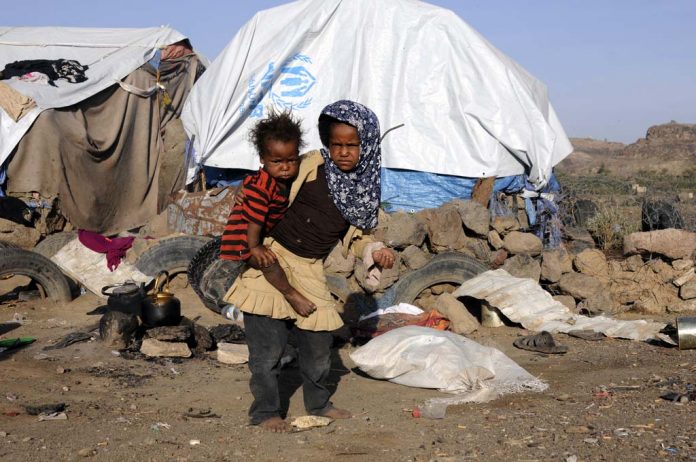
The United Nations has warned of the “highest level” of malnutrition among young children in parts of war-stricken Yemen while the deadly coronavirus outbreak and shortfalls in aid funding have worsened a severe humanitarian crisis unfolding there.
It said Tuesday that more than half a million children under five are suffering malnutrition in the southern parts of the country and the results of a survey of the cases in north, currently underway, are expected to be “equally concerning.”
In a statement, the Food and Agriculture Organization, the World Food Program and the UN children’s fund UNICEF said with a 15.5 percent rise in severe malnutrition, at least 98,000 children in the age group are facing a “high risk of dying” unless they receive urgent treatment.
“The data we are releasing today confirms that acute malnutrition among children is hitting the highest levels we have seen since the war started,” said Lise Grande, the UN’s humanitarian coordinator for Yemen.
Since July, the UN has been issuing warnings that “Yemen is on the brink of a catastrophic food security crisis,” she added.
“If the war doesn’t end now, we are nearing an irreversible situation and risk losing an entire generation of Yemen’s young children,” the UN official warned.
Yemen is facing the world’s worst humanitarian crisis after Saudi Arabia and a number of its allies launched a war against the country about five years ago.
The ongoing war was meant to subdue a popular uprising that had toppled a Riyadh-friendly regime. While the Saudi-led coalition has failed to achieve that objective, it has been continuing often blind operations that kill and maim civilians, including children.
Children are among the most vulnerable victims of the Saudi war on Yemen, but the issue has barely drawn any international response.
The survival of more than 24 million people, nearly 80 percent of Yemen’s population, depends on some form of aid and the situation has deteriorated sharply this year after the outbreak of the coronavirus.
“Escalating conflict and economic decline, plus the overwhelming impact of the COVID-19 pandemic, has pushed an already exhausted population to the brink,” the UN said, adding that aid programs including emergency food assistance have been disrupted as funds dry up.
Many Yemeni parents are becoming reluctant to send their youngsters to clinics for treatment fearing that they are at the risk of contracting coronavirus if being hospitalized.
“Malnutrition here and in Yemen has become catastrophic and there is a significant increase in the percentage of malnourished children,” said paediatrician Fahad Al-Qudsi, who works at Sanaa’s Joumhouri hospital.
“There is a rising shortage of medicines, as well as proper nutrition for pregnant mothers,” he told AFP on Tuesday.
By mid-October, only $1.43 billion of the $3.2 billion needed to fund Yemen aid projects had been received.
The United Nations children’s agency warned in late June that the shortage of humanitarian assistance amid the coronavirus pandemic threatens to push more children in Yemen to the brink of starvation.
The UNICEF report “Yemen five years on: Children, conflict and COVID-19” added that as the country’s “devastated health system and infrastructure overall struggles to cope with the coronavirus pandemic, the already dire situation for children is likely to deteriorate considerably.”



















